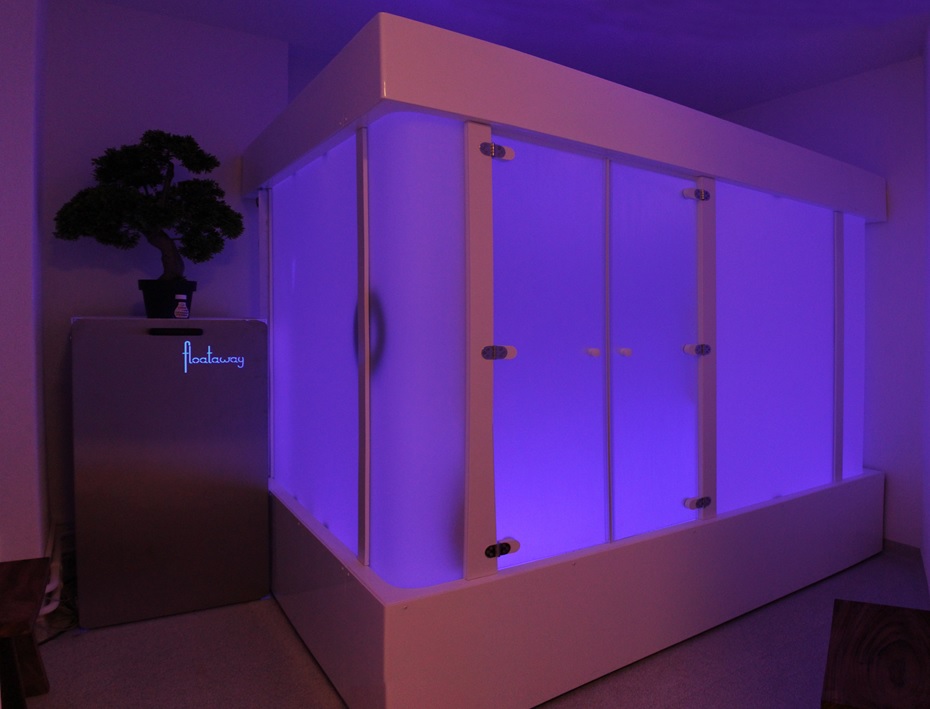- IGPP
- Time perception and time consciousness
- Zeitwahrnehmung_und_Zeitbewusstsein_EN
Time perception and time consciousness
How do we perceive time? Findings on the relationship between affect and time, together with recent conceptualizations on self- and body
processes have connected time perception with emotional and bodily states. Neural processes in the insular cortex, which are related to body
signals, feeling states as well as to self-consciousness, are constitutive mechanisms for the creation of subjective time.
Next to fundamental research on the relationship between the experience of time with cognitive processes and affect, we study how the sense
of time is modulated in altered states of consciousness such as in meditation, through flotation-REST or in drug-induced states as well as in neurological and
psychiatric conditions.
Coordinator
Members
Dr. Julie Papastamatelou
Post-doc, CHANSE-Programm TIMED
E-Mail:
Helena Hruby, MSc.
Scholarship holder of the Hanns Seidel Foundation
E-Mail:
Tel: +49 (0)761 20721 17
Current external funds:
CHANSE Programme “Transformations: Social and cultural dynamics in the digital age” with €1,561,633 (Freiburg: €180,100 funded by BMBF). Ruth Ogden (project leader; Liverpool John Moores University), Nuria Codina (University of Barcelona), Filip Vostal (Institute of Philosophy of the Czech Academy of Sciences), Chantal Martin-Soelch and Omar Abou Khaled (University Fribourg, Switzerland), Marc Wittmann (Institute for Frontier Areas of Psychology and Mental Health, Freiburg), Joanna Witowska (Maria Grzegorzewska University and University of Warsaw).

The rhythms of daily life are increasingly dictated by digital devices. Many people live in a state of “permanent connectivity”. This enables us to be contacted at anytime, anywhere, and to seek information with greater immediacy than ever before. The traditional boundaries between work-time and personal-time can appear evermore blurred and the pace of life can feel increasingly fast. Exactly how increasing digital technology use is affecting our use of time and experience of temporality is currently unknown. The TIMED project will establish how and why the perception and allocation of time are affected by personal levels of digitalisation and how it impacts on quality of life. This will be achieved through a series of studies using interviews, online questionnaires, psychophysiological recording and real-time behaviour analysis. Data will be collected in the Czech Republic, Germany, Poland, Spain, Switzerland and the UK to enable cross-cultural comparisons within Europe.
2023-2025: EEG and behavioral correlates of forward and backward priming
FUNDAÇÃO Bial (027/2022) with € 55,000.- Investigators: Marc Wittmann, Mareike Wilson, Jürgen Kornmeier
EEG in combination with machine learning (artificial neural networks) is used in a (backward and forward) behavioral priming study in order to investigate emotional and self-reference psi effects on the individual and group level.
01/2023 - 12/2023: VR video game-induced psi experiences in red and green Ganzfeld.
Society for Psychical Research with € 4.054.- Investigators: Marc Wittmann, Yannick Lieb, Benjamin Schult
With two novel aspects of the classic psi experiment, we aim to assess the Ganzfeld-induced experience in a sender-receiver dyade consisting of a romantic couple. The sender will play one of four dynamic video games in virtual reality and the receiver will either be in a red or green Ganzfeld.
01/2022 - 12/2024: Assessment of health-psychological stress reduction through floating tanks
Hanns Seidel Foundation scholarship for Helena Hruby, MSc. from funds of the Federal Ministry of Education and Research (BMBF)
Starting in February 2022, we present the Flotation-REST cabin, designed by floataway, our new technological device to induce altered states of consciousness, located at Prana Freiburg.

EU Call Horizon 2020 Topic FETPROACT-01-2018 with € 4,404,698 (Freiburg lab: € 505,000). Investigators: Kai Vogeley (Cologne), Marc Wittmann (Freiburg), Anne Giersch (Strasbourg), Marc Erich Latoschik, Jean-Luc Lugrin (Würzburg), Giulio Jacucci, Niklas Ravaja (Helsinki), Xavier Palomer, Xavier Oromi (Barcelona).
Exploring and Modifying the Sense of Time in Virtual Environments (VIRTUALTIMES)
The sense of time co-constitutes our subjective experience and embodied self-consciousness. It refers to the dimensions of passage of time (time passing by) and structure of time (serial order of events). Both can be disturbed under psychopathological conditions and give rise to a variety of psychopathological symptoms. VIRTUALTIMES will for the first time (1) provide a personalized and neuroadaptive virtual reality technology enabling the systematic variation of time experience, based on (2) the rigorous study of the sense of time in different psychopathological conditions including depression, schizophrenia and autism, and (3) neuroscientific measures that describe neural mechanisms which underlie our sense of time and validate both diagnostic differences and technological interventions. For that purpose, virtual reality scenarios and games will be developed from the starting point of the everyday scenario “waiting room”. We will systematically enrich the scenery both physically (objects) and socially (interaction partners). In the realm of time-based interventions
this will allow to manipulate passage of time (varying velocity of time flow) and structure of time (varying synchronicity of events). VIRTUALTIMES (1) will provide a diagnostic tool and innovative mental health technology that works in a highly individualized, easy-access, and easy-to-use application, (2) will foster new technological developments in the field of human-computer-interaction to improve personal wellbeing and intercultural communication in a global world, and (3) will initiate a radical shift both in empirical approaches to and our understanding of the sense of time as basic constituent of human subjectivity.
Alumni et Alumnae
Dr. Damisela Linares Gutiérrez
Research Fellow at IGPP (Bial studies): 2014-2021
Sebastian Kübel, M.Sc.
Research Fellow at IGPP: 2016-2020
Now at Max Planck Institute Freiburg:
Dr. Federico Alvarez Igarzábal
Research Fellow at IGPP (EU project VIRTUALTIMES): 2019-2022
Now at Cologne Game Lab:
Dr. Shiva Khoshnoud
Research Fellow at IGPP (EU project VIRTUALTIMES): 2019-2022
Now at University of Tübingen:
Selected publications:
The complete list of publications can be found here
- Hruby H, Schmidt S, Feinstein J, Wittmann M (2024). Induction of altered states of consciousness during Floatation-REST is associated with the dissolution of body boundaries and the distortion of subjective time. Scientific Reports 14, 9316.
- Linares Gutiérrez D, Schmidt S, Meissner K, Wittmann M (2022). Changes in subjective time and self during meditation. Biology 11, 1116.
- Costa R, Madeira A, Barata M, Wittmann M (2021). The power of dionysus – effects of red wine on consciousness: A naturalistic study in a wine bar. PLoS ONE 16(9): e0256198.
- Pfeifer E, Wittmann M (2020). Waiting, thinking, and feeling: variations in the perception of time during silence. Frontiers in Psychology Consciousness Research 11 (602).
- Müller M, Müller L, Wittmann M (2019). Predicting the stock market. An Associative Remote Viewing study. Zeitschrift für Anomalistik 19, 326–346.
- Wittmann M (2018). Altered States of Consciousness. Experiences out of Time and Self. Cambridge, MA: MIT Press.
- Jokic T, Zakay D, Wittmann M (2018). Individual differences in self-rated impulsivity modulate the estimation of time in a real waiting situation. Timing & Time Perception 6, 71–89.
- Wittmann M (2016). Felt Time. The Psychology of How We Perceive Time. Cambridge, MA: MIT Press.
- Wittmann M (2015). Modulations of the experience of self and time. Consciousness and Cognition 38, 172-181.
- Wittmann M. (2014). Embodied time: The experience of time, the body, and the self. In: Arstila V, Lloyd D (Eds.), Subjective time: The philosophy, psychology, and neuroscience of temporality. Cambridge, MA: MIT press, 507-523.
- Wittmann M., Peter J., Gutina O., Otten S., Kohls N. & Meissner K. (2014). Individual differences in self-attributed mindfulness levels are related to the experience of time and cognitive self-control. Personality and Individual
Differences 64, 41-45.
- Pollatos O., Laubrock J. & Wittmann M. (2014). Interoceptive focus shapes the experience of time. PLoS ONE 9(1): e86934.
- Jo H-G., Hinterberger T., Wittmann M., Borghardt TL. & Schmidt S. (2013). Spontaneous EEG fluctuations determine the readiness potential: Is preconscious brain activation a preparation process to move? Experimental Brain Research 231, 495-500.
- Wittmann M. (2013). The inner sense of time: how the brain creates a representation of duration. Nature Reviews Neuroscience 14, 217-223.
- Wittmann M. (2011). Moments in time. Frontiers in Integrative Neuroscience 5 (66).
- Meissner K. & Wittmann M. (2011). Body signals, cardiac awareness, and the perception of time. Biological Psychology 86, 289-297.
- Wittmann M., Simmons AN., Aron J. & Paulus MP. (2010). Accumulation of neural activity in the posterior insula
encodes the passage of time. Neuropsychologia 48, 3110-3120.
- Wittmann M., van Wassenhove V., Craig AD. & Paulus MP. (2010). The neural substrates of subjective time dilation. Frontiers in Human Neuroscience 4 (2).
Further information about the research of Marc Wittmann:
https://sites.google.com/site/webmarcwittmann